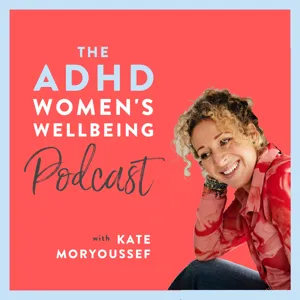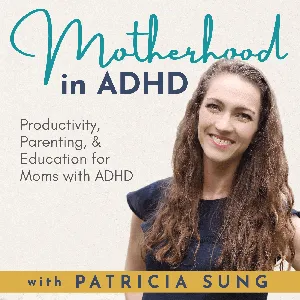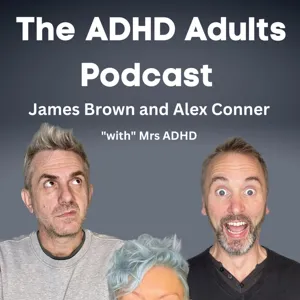Podcast Summary
A visual guide to understanding ADHD for adults: Dr. Ned Hallowell's new book, 'ADHD Explained,' offers adults with ADHD accessible, engaging content through illustrations and diagrams, promoting better understanding and acceptance of the condition.
Dr. Ned Hallowell, a renowned expert on ADHD, has released a new book, "ADHD Explained," which is specifically designed for adults with ADHD. Unlike his previous book, "ADHD 2.0," this book is filled with illustrations and diagrams to make complex information more accessible and engaging for those with ADHD. The format is intended to be visually appealing and easy to understand, even for those who struggle with traditional reading methods. The goal is to help adults with ADHD better understand their condition and find acceptance, while also providing valuable information that can be easily absorbed through various learning styles. The book aims to challenge the "stiff upper lip" approach to dealing with ADHD in the UK and offer a more relatable and effective way to manage the condition.
Understanding ADHD: A Path to Positive Change: ADHD is a genetic condition with symptoms like impulsivity, disorganization, and difficulty focusing. A proper diagnosis can provide relief and lead to improvements with medication and other strategies.
ADHD is a genetic condition that can significantly impact a person's life, often leading to underachievement due to symptoms such as impulsivity, disorganization, and difficulty focusing. These symptoms can cause frustration and self-doubt, leading some to believe they are stupid or lazy. However, a proper diagnosis can be a relief and a catalyst for positive change. Medication, when used appropriately, can act like eyeglasses or brakes, allowing individuals with ADHD to focus and direct their thoughts effectively. The fear of medication is often unfounded, as it can be safe and effective for most people. Overall, understanding ADHD and seeking help can lead to significant improvements in quality of life.
Understanding ADHD's impact on the default mode network: ADHD affects individuals uniquely, and managing the default mode network through stimulating tasks can help improve self-perception and reduce anxiety.
ADHD affects individuals differently, and understanding its intricacies, especially in relation to hormones and the default mode network, can lead to better management and coping strategies. The default mode network, often referred to as the "demon," can turn against individuals with ADHD, leading to negative self-perception, anxiety, and rumination. However, this network can be managed by engaging in tasks and activities that stimulate the task positive network, allowing the imagination to thrive rather than turning against the individual. The ongoing research and awareness around ADHD, including its interplay with hormones and the brain, continue to provide new insights and tools for those living with this condition.
Redirecting attention to stimulating activities: Engage in stimulating activities to withdraw focus from negative thoughts and learn to switch channels to avoid getting stuck in a mental rut.
Our attention is powerfully drawn to negative experiences, making it difficult to shift focus. This negative onslaught, whether it stems from fear, self-hatred, or other forms of conflict, can be gripping and challenging to break free from. To redirect attention and shut off the Default Mode Network (DMN), one must engage in stimulating activities that hold the mind's focus effectively. These activities can include vigorous exercise, loud music, cooking, making love, or any other engaging experience. The moment attention is withdrawn, the negative thoughts resurface. People may become stuck in a mental rut, lambasting themselves, unable to escape the demon. To avoid this, it's crucial to learn to switch channels and tune into something else stimulating enough to take your mind away. Additionally, attending events and workshops can provide valuable resources and insights for those dealing with ADHD. For instance, an exclusive event with ADHD pioneer Sari Solden, a psychotherapist and author, offers an opportunity to learn from her extensive experience and knowledge in the field. Another workshop series focuses on regulating and calming the nervous system, providing practical tools for managing heightened anxiety and hypervigilance. Lastly, the hormone series, with new speakers Kate Sheppard Cohen and Nicola Harker, offers insights into the impact of hormones on neurodivergent women and how to help ourselves through challenging times.
Understanding ADHD's hyper-vigilant state: ADHD can lead to high productivity but also burnout. Recognizing triggers and finding practical tools can help manage the nervous system and turn unique traits into advantages.
Individuals with ADHD experience a hyper-vigilant state, which can lead to high achievement and productivity but also result in burnout. This constant state of alertness, often accompanied by an endless curiosity and the inability to rest, can lead women, in particular, to overcommit and eventually crash. Understanding the ADHD nervous system and recognizing triggers can help individuals find practical tools to regulate their nervous system, promoting feelings of calm, safety, and relaxation. The legal system can play a role in this process by providing resources and accommodations for individuals with ADHD. By learning to manage this difference, individuals with ADHD can turn their unique traits into advantages rather than disadvantages.
Never worry alone, share concerns with others: Sharing worries with others provides perspective, keeps imagination in check, and alleviates stress
Worrying can be a toxic and all-consuming experience, but it becomes less overwhelming when we share our concerns with others. Human connection is an effective antidote to worry, as it helps us gain perspective and keeps our imagination from running away with us. When we worry alone, we tend to catastrophize and globalize our problems, leading to physical and emotional distress. However, focusing on helping others or engaging in activities we love can help us shift our focus and alleviate our worries. Sharing our worries with trusted individuals, such as a partner or friend, can also provide valuable perspective and help us see that our concerns may not be as dire as we think. So, remember, never worry alone.
Our imagination can be a source of worry and fear: Imagination brings creativity, innovation, and beauty, but can also lead to worries and fear. Trusted support systems can help navigate the downside and focus on the benefits.
Our imagination, which is a source of creativity, innovation, and beauty, can also be a source of worry and fear. Psychosis, which involves an overactive imagination, can lead to hearing voices or believing that someone is out to get you. This can be reassuring to know that these worries have no basis in reality. However, our capacity to imagine horrific situations can also become our worst enemy. It's important to have someone in your life who can help burst the bubble of your worries and reassure you that you're not in danger. This is especially important for neurodivergent individuals who are naturally wired to feel fear and detect danger. Our brains are geared towards anticipating and dealing with danger, but we can also access higher level pleasure through creativity and imagination. Nature has given us the capacity to perceive and create beauty, which is a genuine pleasure. So, in short, the takeaway is that our imagination, while a valuable asset, can also be a source of worry and fear. It's important to have a trusted support system to help us navigate the downside of our imagination and focus on the beauty and creativity it brings.
Finding Order Amidst Chaos with ADHD: People with ADHD can find order through art, nature, self-care, authentic connections, and personal passions. Embrace your unique self to build a purposeful and joyful life.
People with ADHD, in their unique way, are driven to create order amidst the natural tendency towards chaos. Art and nature are powerful tools in arranging things and bringing meaning to our lives. It's essential to prioritize self-care, authentic connections, and personal passions to build a life filled with purpose and joy. The opposing forces within us, such as focus and distraction, are part of who we are, and embracing our authentic selves leads to true connections and personal growth. The legacy we'd like to leave for future generations with ADHD is a world where they are celebrated for their unique gifts and encouraged to explore their potential, unmasking the layers of societal expectations and embracing their true selves.
Recognizing and Developing Strengths with ADHD: ADHD brings unique strengths and abilities, focusing on them can 'crowd out' negatives, resources and support are essential to unlocking potential, and individuals with ADHD can achieve great things.
While living with conditions like ADHD comes with its challenges, it also comes with unique strengths and abilities. Instead of focusing solely on the negative aspects, it's essential to recognize and develop these strengths. By growing our creativity, imagination, and other talents, we can "crowd out" the negative and build fulfilling lives. However, it's important to acknowledge and address weaknesses as well, not ignore them. The speaker emphasizes the importance of finding support and resources to unlock the full potential of these conditions. Despite the difficulties, individuals with ADHD can achieve great things, from Nobel Prizes to entrepreneurial success. The speaker's mission is to help people turn their condition into a gift, and the widespread availability of resources like podcasts and books can make a difference. The speaker admires the podcast host's dedication to sharing her experiences and helping others, despite having four children with ADHD. Overall, the upside of ADHD is worth the effort to uncover, and with the right support and mindset, it can lead to remarkable achievements.
Embracing the Need for Chaos and Finding Support for ADHD: Many people, including those with ADHD, may prefer a busy environment over solitude. Self-acceptance and seeking supportive communities can aid personal growth and understanding for those diagnosed later in life.
While moments of solitude can be blissful, many people, including those with ADHD, often find themselves craving the chaos and busyness of their daily lives. The speaker shared her personal experience of enjoying the quiet for an hour but growing bored and restless by the evening when her family was away. This preference for a more active environment is likely a common trait among individuals in today's fast-paced world. Additionally, the speaker emphasized the importance of self-acceptance for those diagnosed with ADHD later in life. She encouraged listeners to explore and heal themselves through resources such as her monthly membership, the ADHD women's well-being collective, which offers opportunities for connection, support, and exclusive content. Doctor Ned, an author and expert on ADHD, joined the conversation to discuss his book, "ADHD Explained," which is now available from DK, a British publisher. The speaker expressed her gratitude for his insights and the positive impact their conversation had on her own well-being. Overall, the conversation highlighted the importance of embracing one's unique experiences and seeking out supportive communities for personal growth and understanding.


